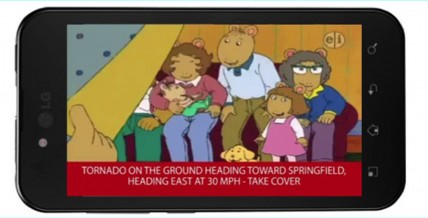Development
California Arts Council directs state aid to three public media outlets
In the first and potentially only government-backed grant program supporting arts coverage by California’s public media stations, KQED, PBS SoCaL and Radio ...GPB Radio to operate Atlanta’s WRAS without tax-based funding
Georgia Public Broadcasting will fund its new daytime public radio news service on Atlanta’s WRAS through private revenues, not state subsidies, according ...Stations retool pledge drives to account for rise in sustainers
DENVER — An increase in sustaining memberships has provided a welcome source of stable income for some public radio stations, but it has ...Public Media Platform to focus on business planning in project’s second phase
DENVER — The Public Media Platform is moving into the next phase of its CPB grant, shifting its focus to developing a ...Pubmedia stations foresee decline of on-air pledge drives, cite need for new tactics
With analysis from Richard McPherson Individual contributions to local public broadcasting stations are the single largest revenue stream coming into public broadcasting. According to ...Knight Foundation grants $750,000 to three public media projects
DENVER — Three public media projects aimed at developing new audiences, revenue and content will each receive $250,000 from the John S. ...PBS to track behavior of viewers pledging to core-schedule programs
In an experiment signaling public TV’s resolve to address concerns about the long-term effects of transactional pledging on its donor base, PBS ...Expanded budget buoys plans for PBS’s revamped development division
Betsy Gerdeman, who took over as senior vice president of PBS Development in February, is busy rebuilding that staff while focusing on ...Target breach disrupts sustainer giving, cash flow at pubcasting stations
Public broadcasters continue to count their losses from last year’s massive consumer data hack of the retail giant Target as they scramble ...Study finds most listeners don’t mind NPR’s embedded underwriting credits
A committee of NPR’s board voted May 8 to maintain embedded underwriting at its current level on network programs, despite concerns among ...MinnPost, Voice of San Diego set high membership goals with support from Knight
The two nonprofit newsrooms will split a $1.2 million grant from the foundation over two years.Orman’s ‘Financial Solutions’ boosts public TV’s March pledge drive
Public television’s March pledge drive raised $46.7 million for 146 local stations, an increase of 19.3 percent from last year’s spring fundraiser.WFMT hits one-day pledge drive record using only music from one CD
WFMT-FM in Chicago racked up 700 pledges in a six-hour period relying solely on listeners’ reactions to recorded performances of a Vera ...In spectrum auction decisions, weigh the value of public service
With the unique opportunity presented by the auctions, proper due diligence certainly requires PTV leaders to weigh the potential one-time upside from ...WETA receives $1 million for culture, history and public affairs programs
Washington, D.C., philanthropist and financier David M. Rubenstein has established a $1 million fund at WETA in suburban Arlington, Va., for producing ...




